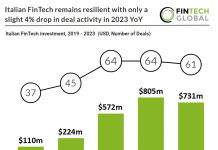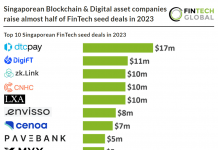The Monetary Authority of Singapore (MAS) has launched Project Guardian, a collaborative initiative with the financial industry aimed at exploring the economic potential and value-add of asset tokenisation.
Tokenisation is the process of digitally representing assets or items of value through a smart contract on a blockchain. This allows high-value financial and real economy assets to be fractionalised and exchanged via the internet on a P2P basis.
MAS claims these smart contracts will enable decentralised finance, which means financial transactions, such as borrowing, lending and trading activities will be performed autonomously on a blockchain without intermediaries. Through this, it could enhance the efficiency, accessibility, and affordability of financial services, increase liquidity in financial markets, and enhance economic inclusion, it said.
Project Guardian will test the feasibility of applications in asset tokenisation and DeFi, whilst managing risks to financial stability and integrity. Currently, there are plans for four main areas to be explored during pilot use cases.
The first area is open, interoperable networks. It will explore the use of public blockchains to create open, interoperable networks that would enable digital assets to be traded across platforms and liquidity pools. This includes interoperability with existing financial infrastructure
MAS claimed these types of networks mitigate against the formation of walled gardens in digital exchanges and fragmented private markets.
The second area will be around trust anchors. It hopes to establish a trusted environment for the DeFi protocols through a common trust layer of independent trust anchors. These are regulated financial institutions that screen, verify and issue verifiable credentials to entities that wish to participate in DeFi protocols. These will ensure participants only trade with verified counterparties, issuers and protocol developers.
Its third area will be based around asset tokenisation. MAS hopes to examine the representation of securities in the form of digital bearer assets and the use of tokenised deposits issued by deposit-taking institutions on public blockchains.
The goal of this pilot is to build upon existing token standards, incorporate trust anchor credentials and enable asset-backed tokens to be interoperable with other digital assets used in DeFi protocols on the open networks.
Finally, its fourth topic is around institutional grade DeFi protocols. The regulator will study the introduction of regulatory safeguards and controls in DeFi protocols to mitigate against market manipulation and operational risk. It hopes the project will also examine the use of smart contract auditing capabilities to detect code vulnerabilities.
The first industry pilot through Project Guardian will explore potential DeFi applications in wholesale funding markets. This will be led by DBS Bank, JP Morgan and Marketnode and will involve the creation of a permissioned liquidity pool comprising tokenised bonds and deposits.
The pilot aims to carry out secured borrowing and lending on a public blockchain-based network through execution of smart contracts.
MAS chief FinTech officer Sopnendu Mohanty said, “MAS is closely monitoring innovations and growth in the digital asset ecosystem and working through the potential opportunities and risks that come with new technologies – to consumers, investors and the financial system at large.
“Through practical experimentation with the financial industry and the broader ecosystem, we seek to sharpen our understanding in this rapidly transforming digital assets ecosystem. The learnings from Project Guardian will serve to inform policy markets on the regulatory guardrails that are needed to harness the benefits of DeFi, while mitigating its risks.”
The Green Finance Industry Taskforce, convened by the Monetary Authority of Singapore, recently published the second version of its green taxonomy for consultation. The taxonomy detailed thresholds and criteria for economic activities in the energy, transport and real estate sectors.











